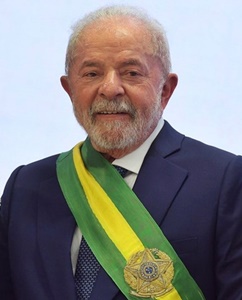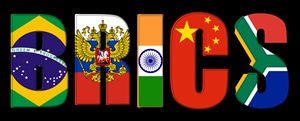The President of Brazil, Luiz Inacio Lula da Silva, popularly known as Lula, proposed the idea of establishing a common currency among the BRICS nations.

BRICS is a grouping of the economies of Brazil, Russia, India, China, and South Africa. The predecessor of this group, before South Africa joined the other four in 2010 was known as BRIC.
President Lula’s proposal aims to mitigate the susceptibility of the economies of most countries to the fluctuations in the value of the US dollar in trade and investment transactions.
Lula put forth the suggestion on 23 August 2023 during a BRICS summit held in Johannesburg, South Africa.
However several experts and officials have commented that there are formidable challenges associated with this initiative. Chief among them, they have said, are the significant economic, political, and geographical differences among Brazil, Russia, India, China, and South Africa.
Lula holds the view that nations not using the dollar should not be compelled to engage in trade using that currency. He expressed support for the implementation of a shared currency within the Mercosur bloc, which comprises South American countries.
Addressing the opening session of the summit, he stated that a BRICS currency would ‘expand our payment choices and diminish our exposure to vulnerabilities.’
South African officials had previously stated that the discussion of a BRICS currency was not included in the summit's agenda.
Back in July, India's foreign minister, S. Jaishankar, had asserted that the concept of a BRICS currency did not exist, and the agenda would include discussions on enhancing trade in the respective national currencies.
Russian President Vladimir Putin, who participated in the gathering via video link, said the discussions would revolve around transitioning trade between member nations from the dollar to their respective national currencies. On the other hand, China has yet to provide a statement regarding this idea.
President Xi Jinping, during his address at the summit, emphasized the importance of advancing ‘the reform of the international financial and monetary system.’
During an interview with a radio station in July this year, Lesetja Kganyago, governor of the South African central bank had described the creation of a BRICS currency as a ‘political endeavor’. Kganyago has emphasized the need to establish of a banking union, a fiscal union, and the attainment of macroeconomic convergence before a common BRICS currency can be created.

A mechanism for enforcing compliance among countries is required, especially for those that deviate from the established framework. Also, the creation of a common central bank raises the question of its geographical location. Not an easy decision to reach.
Trade imbalances pose a significant challenge, as highlighted by Herbert Poenisch, a senior fellow at Zhejiang University, in a blog post for the think-tank OMFIF.
‘All BRICS member nations primarily engage in trade with China, with minimal trade occurring among themselves.’
BRICS leaders have expressed their desire to increase the use of their respective national currencies instead of relying heavily on the dollar. This shift has gained prominence, particularly after the substantial strengthening of the dollar last year due to the Federal Reserve's interest rate hikes and Russia's involvement in Ukraine, resulting in increased costs for dollar-denominated debt and imports.
The sanctions imposed on Russia, leading to its exclusion from the global financial system last year, also heightened speculation that non-Western allies might transition away from the dollar.
‘In Tuesday's summit,’ Putin emphasized, ‘the relentless process of reducing our economic dependence on the dollar is gaining traction.’
According to data from the International Monetary Fund, the dollar’s share of official foreign exchange reserves dropped to a 20-year low of 58% in the last quarter of 2022, and it fell to 47% when accounting for fluctuations in exchange rates.
Nonetheless, the dollar continues to hold a dominant position in global trade, being involved in one side of nearly 90% of worldwide foreign exchange transactions, as reported by data from the Bank for International Settlements.
De-dollarization would necessitate a widespread shift, with numerous exporters, importers, borrowers, lenders, and currency traders worldwide making independent decisions to opt for alternative currencies.





















